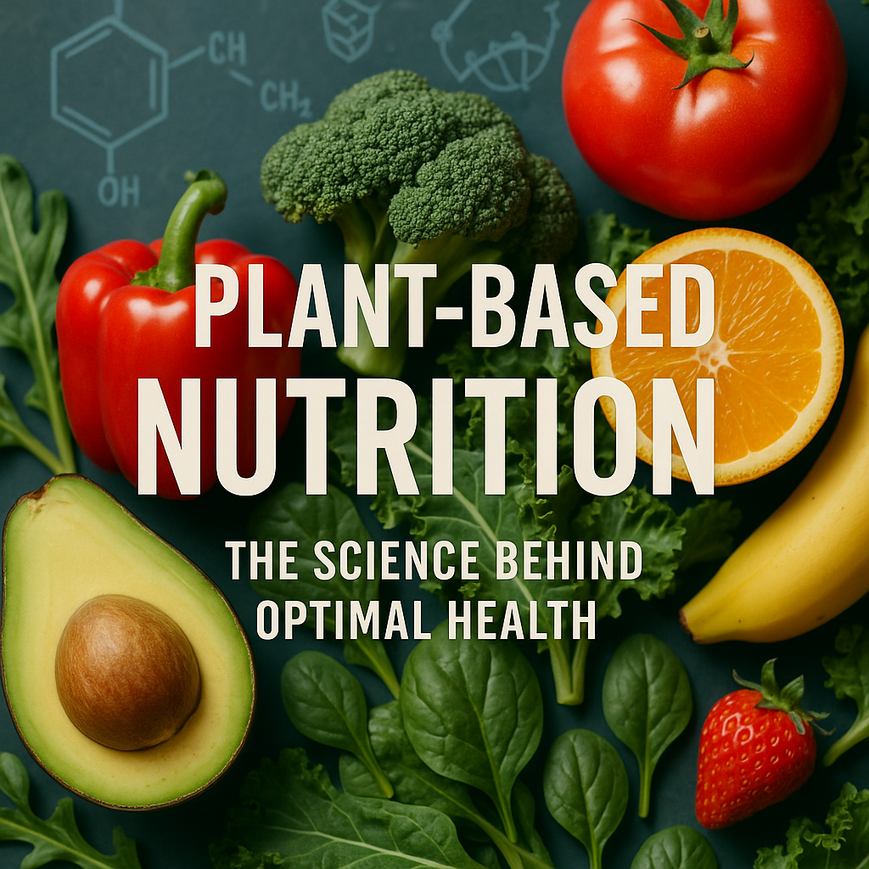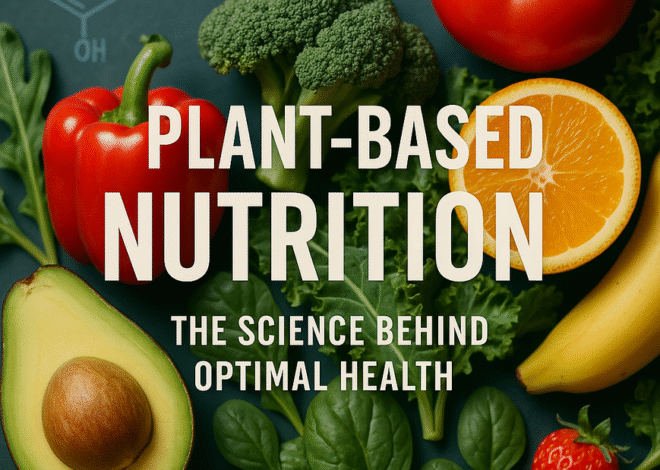
Lant-Based Nutrition: The Science Behind Optimal Health
“`html
Introduction to Plant-Based Nutrition: Understanding the Basics
Plant-based diets are inherently rich in essential nutrients that support overall health and well-being. Key vitamins, such as Vitamin B12, are critical for nerve functionality but are found in fortified foods or supplements, as whole plant foods generally lack this vitamin. Additionally, Vitamin D, which is vital for bone health, can be sourced from sunlight exposure or fortified plant milks. Furthermore, Vitamin C, known for its antioxidant properties, supports the immune system and is abundant in citrus fruits, bell peppers, and dark leafy greens.
Key Nutrients in Plant-Based Diets: What Your Body Needs
Minerals such as iron, zinc, and calcium are also prevalent in plant-based diets. Non-heme iron sourced from lentils and chickpeas is less readily absorbed than heme iron found in animal products. However, pairing these with Vitamin C-rich foods enhances absorption. Zinc, essential for immune function, is obtainable from beans, nuts, and seeds, while calcium, often associated with dairy, can be sourced from leafy greens, almonds, and fortified plant milks. For detailed insights on building a nutritious plant-based lifestyle, explore our articles on urban gardening and zero waste living.
Scientific Evidence: How Plant-Based Diets Promote Optimal Health
Recent scientific studies have shown that plant-based diets significantly benefit health, particularly regarding disease prevention and promoting longevity. Research published in the Journal of the American Heart Association indicates a markedly lower risk of heart disease and hypertension among individuals following plant-based diets, credited to their higher intake of antioxidants and lower saturated fat levels. Another extensive study from Frontiers in Nutrition emphasizes a reduced incidence of type 2 diabetes in people consuming diets rich in whole plant foods, which are known to enhance insulin sensitivity due to their fiber and phytonutrient content.
Moreover, a comprehensive review in Nutrients shows that these diets contribute to longevity by reducing mortality rates from various chronic diseases. With high amounts of vitamins, minerals, and other beneficial compounds, plant-based diets strengthen the immune system and diminish inflammation. Additionally, studies have linked plant-based food consumption to improved mental health, with systematic reviews indicating that diets focusing on fruits, vegetables, and whole grains are associated with lower rates of depression and anxiety, highlighting the connection between diet and mental wellness.
Overcoming Challenges: Common Myths and Practical Tips
Transitioning to a plant-based lifestyle comes with its challenges, often exacerbated by misconceptions. To help ease this transition, consider these practical tips:
- Start Slowly: Gradually replace animal-based foods with plant-based alternatives.
- Educate Yourself: Understand essential nutrients such as protein, iron, and calcium; utilize resources like the Healthline Guide.
- Plan Your Meals: Prepare diverse meal plans to ensure nutrient intake.
- Cook at Home: Control your ingredients and explore new recipes.
- Read Labels: Check packaged products for hidden animal-based ingredients.
- Join a Community: Connect with like-minded individuals for support and sharing recipes.
- Experiment with New Foods: Embrace global cuisines that highlight plant-based dishes.
- Be Mindful of Your Choices: Notice how your body reacts to new foods.
- Stay Active: Pair dietary changes with regular physical activity.
- Seek Professional Advice: Consult with a registered dietitian for personalized guidance.
Transitioning to a plant-based diet can provide numerous health benefits such as reduced risk of chronic diseases, effective weight management, and improved digestive health. An NCBI study emphasizes that a well-planned plant-based diet supports long-term health and vitality. Embrace your journey towards a healthier lifestyle with care and intention.
Implementing a Plant-Based Lifestyle: Step-by-Step Guidance
In order to successfully implement a plant-based lifestyle, follow a structured plan. Start with small modifications to your existing diet and learn about the nutritional content of food. Seek out local resources like grocery stores that offer plant-based options. Cooking at home allows for creativity in the kitchen while ensuring you know exactly what goes into your meals. Being informed about the ingredients in your food, by reading labels, will help avoid animal products unintentionally.
Networking with others who follow a similar dietary path can provide much-needed encouragement and ideas. Keep an open mind as you experiment with various recipes and cuisines; this will not only diversify your palate but also enhance your nutritional intake. Stay attuned to your body’s responses as you shift towards this diet, making adjustments when necessary. Moreover, maintaining an active lifestyle complements your dietary changes for holistic health improvements.
Sources
- Frontiers in Nutrition – Reduced Incidence of Type 2 Diabetes
- Healthline – Guide to a Plant-Based Diet
- NCBI – The Health Benefits of Plant-Based Diets
- Journal of the American Heart Association – Plant-Based Diets and Heart Disease Risk
- Nutrients – Plant-Based Diets and Longevity
“`








